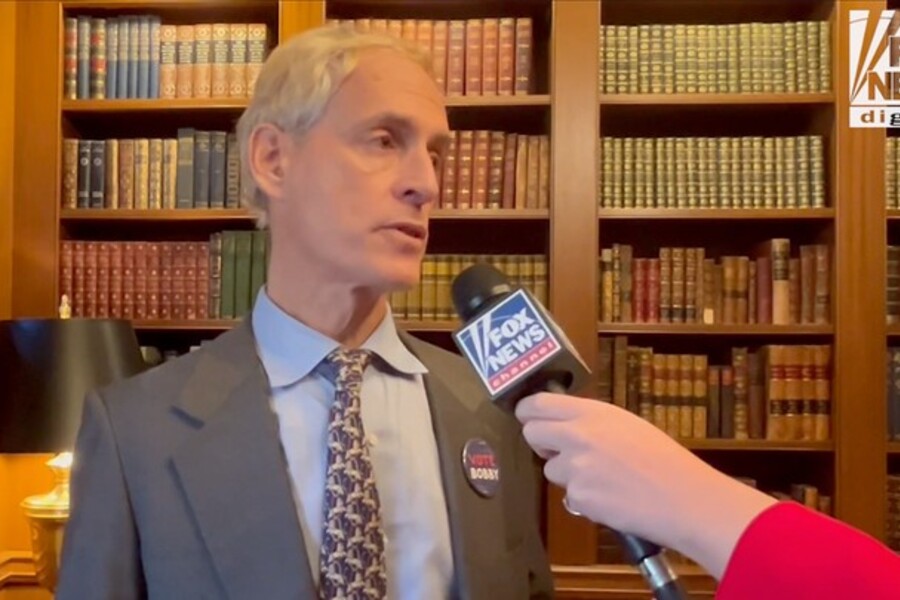In a political era often defined by deep partisanship, Robert F. Kennedy Jr.’s “Make America Healthy Again” (MAHA) initiative is gaining traction — not in the halls of Congress, but in state legislatures across America. Promoted as a war against the “chronic disease epidemic,” MAHA is quietly revolutionizing public health policy in both red and blue states — blurring political lines and rallying unlikely coalitions.
From Utah’s fluoride-free water initiative to Arizona’s ban on ultra-processed school meals and West Virginia’s crackdown on soda in food stamp programs, the MAHA movement has become a flashpoint for grassroots activism and legislative action. Kennedy’s allies — a mix of former Democrats, Republican moms, wellness influencers, and functional medicine practitioners — are redefining how states think about health, food, and environmental exposure.
MAHA — Make America Healthy Again — was launched by Health Secretary Robert F. Kennedy Jr., who once ran against Donald Trump in the 2024 presidential race before dropping out and joining Trump’s Cabinet. Now the top health official in the administration, Kennedy has made chronic illness, not infectious diseases, the centerpiece of national health reform.
Kennedy’s early directives included plans to phase out artificial food dyes and launch studies into environmental toxins potentially linked to autism and autoimmune conditions. But the real traction has emerged at the state level, where legislation aligned with MAHA’s mission has gained unexpected bipartisan support.
As of spring 2025, at least five states — West Virginia, Utah, Arizona, Florida, and Idaho — have passed sweeping health bills aligned with MAHA principles, while more than 30 additional bills are under consideration nationwide. In Utah, a new law bans artificial food dyes in school lunches and eliminates supplemental fluoride from water supplies. West Virginia has removed soda from food stamp eligibility and restricted chemical dyes. Arizona now prohibits ultra-processed foods in public school cafeterias and has banned soda from SNAP purchases. Florida and Idaho have passed similar measures, with governors declaring support for MAHA as a patriotic health cause.
In Indiana, Republican Governor Mike Braun launched the “Make Indiana Healthy Again” initiative, signing nine executive orders promoting food safety and local agriculture. RFK Jr. joined him for the announcement, alongside Dr. Mehmet Oz, the new CMS director, signaling federal-level alignment with the movement.
Kennedy’s campaign-style messaging has resonated strongly with suburban mothers, particularly those identifying as Republicans but concerned about family health. Emily Stembridge, a mother of three in Utah, was one of many who lobbied her state’s legislature after being inspired by Kennedy’s emphasis on environmental toxins and artificial food additives. Calling herself a “MAHA Mom,” she worked with state lawmakers to get a bill passed banning dyes in schools — a bill Governor Spencer Cox signed into law in March.
Supporters describe MAHA as a health awakening — one that emphasizes prevention, food purity, environmental safety, and reduction in pharmaceutical dependency. Dr. Will Cole, a functional medicine practitioner and longtime Kennedy ally, said MAHA represents “an awakening for Republicans” who have traditionally ignored these issues or dismissed them as liberal concerns. For Cole and others, Kennedy has made holistic wellness a bipartisan issue.
This political shift has opened the door for cross-party collaboration. While Republican governors have adopted many MAHA-aligned measures, the movement also supports Democratic proposals. California’s Farm to School initiative and New Jersey’s attempt to ban chlorpyrifos are both examples of liberal-led efforts receiving MAHA backing. The coalition includes former Democrats, independents, moderates, and libertarians.
Del Bigtree, head of MAHA Action and the MAHA Alliance Super PAC, said the grassroots movement is exerting “immense pressure” on Congress. Though no major federal legislation has been introduced yet, Bigtree confirmed discussions are ongoing with lawmakers from both parties to co-sponsor health-focused bills.
However, Kennedy’s growing influence has also sparked criticism. Dr. Paul Offit, a prominent vaccine expert, supports MAHA’s restrictions on sugar and dyes but strongly opposes Kennedy’s broader views. “He’s an anti-vaccine activist and a science denialist,” Offit said. “Why would we suddenly trust him with food science?” He also warned that removing fluoride from water will likely lead to increased dental issues, especially among children.
Even Republican lawmakers are occasionally torn. In Tennessee, MAHA Action opposed a GOP-backed bill that would shield pesticide companies from liability. The bill was tabled after criticism from constituents and advocacy groups. Rep. Dr. Brock Martin, a Tennessee Republican and practicing physician, expressed admiration for Kennedy’s leadership but acknowledged that some agricultural policies remain contentious.
Kennedy’s visit to Utah to celebrate the state’s dye ban was a personal moment for Stembridge, who saw her advocacy become law. “It was exciting because he’s actually addressing the giant elephant in the room of humanity,” she said. “Like, America is sick and someone’s finally pointing that out — and then saying, ‘And what are we going to do about it?’”
Calley Means, a Kennedy advisor and entrepreneur, believes the key message of MAHA is transparency. “It’s about making sure the incentives of our healthcare and food systems are prioritized to American health,” he said, accusing pharmaceutical and food giants of profiting from chronic illness.
Kennedy’s team continues to push health literacy, local food access, and chemical-free nutrition — topics once confined to alternative circles that are now making their way into mainstream legislative priorities. Though his past anti-vaccine rhetoric remains controversial, the broader goals of MAHA have found common ground across ideological divides.
Whether the movement grows into a sustainable force in federal policy or remains a state-led revolution, one thing is clear: MAHA is no longer a fringe crusade. It’s a full-fledged political movement reshaping America’s approach to health, one state at a time.

